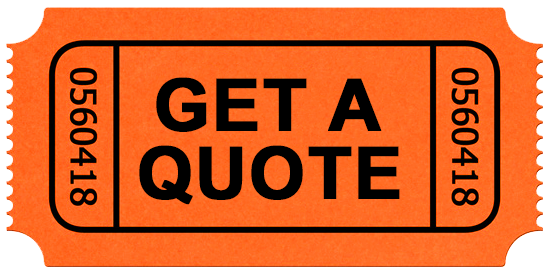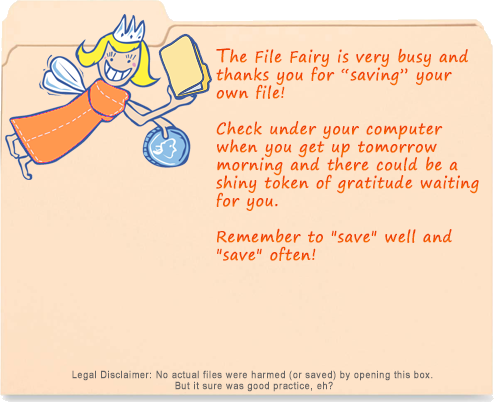Meet Some Very Well-read Robots
Search Engine ‘bots or ‘crawlers’ read and log every web site in the world, following every link. Although no one knows precisely how their ratings work, it is generally agreed that they rank any site based on two basic things: how popular it is and how relevant it is. Popularity is based on how many other sites link to yours. Relevance is a bit trickier, but basically Google compares what a searcher types in as his query-phrase with what your text content is: the better the match and the greater number of matches, the more relevant you are for that given search term. Optimizing your site means, then, making it more popular and relevant for given search terms.
Going Organic
When you type in a phrase in a search engine, two kinds of results are returned, the ‘organic’ and the paid listings. Those on the right side of your page and the first few highlighted listings at the top of the left hand side are “pay per click” listings, which we talk about on our search engine marketing page. But the majority of listings on the left hand side are called the ‘organic’ listings, which means they’re the ‘natural’ ones, those that are based solely on popularity and relevance, not upon how much someone has paid to be listed.
Do They Like You, Do They Really Like You?
Optimizing your organic listings for popularity means that you want as many other web sites to have a link to yours as possible. Generally, another site that is similar to yours is a good place to begin soliciting for a link. For example, if you’re selling antique Chippendale chairs on your site, then another web site or blog all about English antiques might be interested in placing a link to your site in their content. Keep in mind that you’ll need hundreds or even thousands of these kind of links to have any really important popularity rating. The most popular sites in the word have tens of millions of incoming links.
In Terms of Relevance
Luckily, relevance is also very important for Search Engine Optimization. The question is, relevant to what? Remember that search engine ‘bots have logged the content of every website in world and that they compare that content to what a searcher types into the little box. So let’s say you were selling antiques on your website. You’d want to know what search terms people normally type in to find an antique site. Google Analytics is a service that generates detailed statistics about who visits a web site and how they got there. So, I bet you wouldn’t be too surprised to find that people searching for ‘antiques’ are likely to type “antiques” into their search window. When they do that, about 273 million web pages are returned as results. “Antiques” is what is called a “competitive” search term; there are a lot of sites with the general word “antique” in their content. That means it would be quite difficult to get your site on the first results page, never mind first place on the first page. But you might also think that people might search for more specific terms than the blanket phrase “antiques”. So what if you searched on Google for “antiques in Brampton”? Now we’re down to only 442 thousand page listings. Still a pretty competitive phrase. But if we type in “authentic Chippendale chairs in Brampton”? We return only six thousand web pages. Although six thousand is still a big number, it’s far more manageable. If your site text contained those words in the right proportion to other text and if your site was around for six months to a year, you might very well begin to creep onto the first page of Google, maybe even into first place for that search term. A little creativity and specificity in which terms you choose to optimize for is just one strategy for quickly and efficiently driving searchers to your site. There are many other strategies we can tell you about, too.
Too Much Relevance is a Bad Thing
We’ve heard there might be a few tricksters out there in Internetland. These tricksters, you might suppose, could make it so that the entire text-content of their site was just the phrase “authentic Chippendale chairs in Brampton” repeated over and over again. That way, they’d get to Google’s page one for that term very fast, because that’s all the content their web site contains. Well, we’re here to tell you that Google knows about these kinds of practices, and if you do this you can get “blacklisted”—Google won’t show your site at all because they know you’re trying to be tricky. The phrase must occur at the right proportion in a “natural flow” of language. Once again, there are many other optimization practices that might seem innocent, but which can cost you your entire web site. We’ll be sure to tell you all about them.
The Art of Optimization
In any case, researching what terms are least competitive but also most relevant to what your site is about and then optimizing the site (or even separate pages) for these terms is a lot of what search engine optimization is about. The more specific your terms are, the less competitive they are, and the greater your chances of success. And keep in mind that the phrases people search with change all the time, so optimization is an ongoing process.
Here’s an ‘in a nutshell’ summary of what we generally do to optimize your site:
- Research what you competition is doing. What search terms did they optimize for and how well are they doing with them?
- Decide on the best and most relevant search terms for you and review and edit your site’s content to make sure those terms are used in the right proportion and in the best places (such as in titles and meta-descriptions).
- Review and optimize your site’s download speed, the ease and completeness of its navigation, and ensure that all images are present and have descriptions (no search engine can ‘read’ a picture, but they can read their linguistic descriptions).
- Implement an xml site map for the search engines. This provides a skeletal plan of the way your pages are inter-linked, so the ‘bots scan all of your pages before wandering off to explore links to external sites that you might have on your site.
- Submit your optimized website to all search engines and directories, both local, national and international. (Yes, you can submit your site, instead of just sitting back and waiting for a ‘bot to scan it). We also resubmit you site at timely intervals (search engines have rules about this), such as when you change your content.
- Regular monitoring of your keywords and phrases to account for changes in search-query phrases. For example, many search phrases change drastically at Christmas, Valentine’s Day, after major events, etc.
- And the last, but without doubt the most important thing: monthly reporting to show you that the whole rigmarole is actually worth it!! Yes, you are closing in on first place—yeah! Oh, but you haven’t called us yet. Well, get on it!






